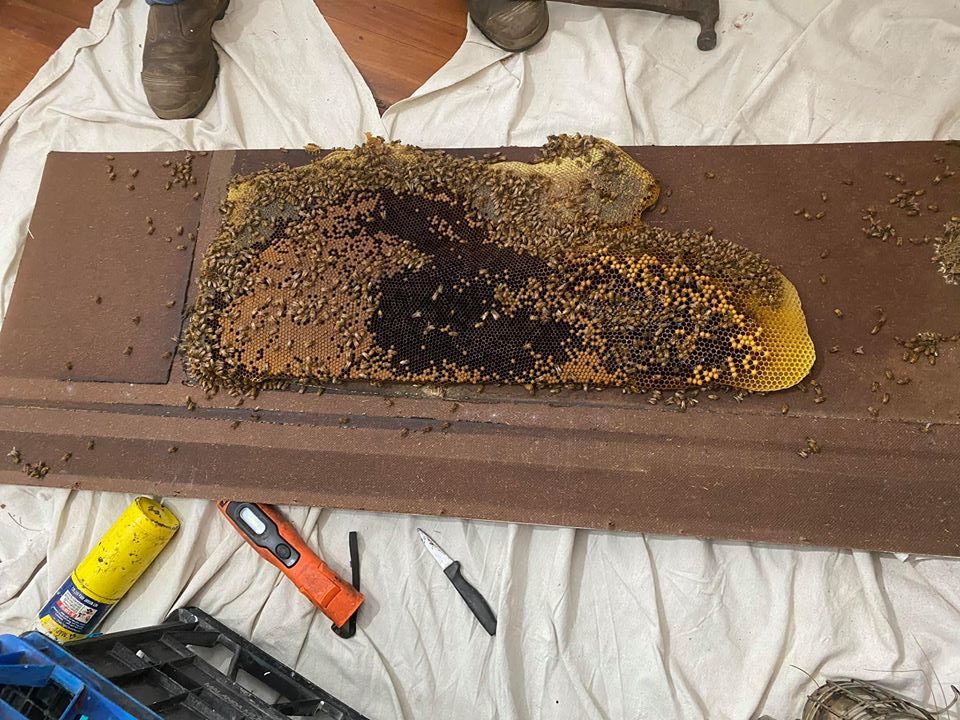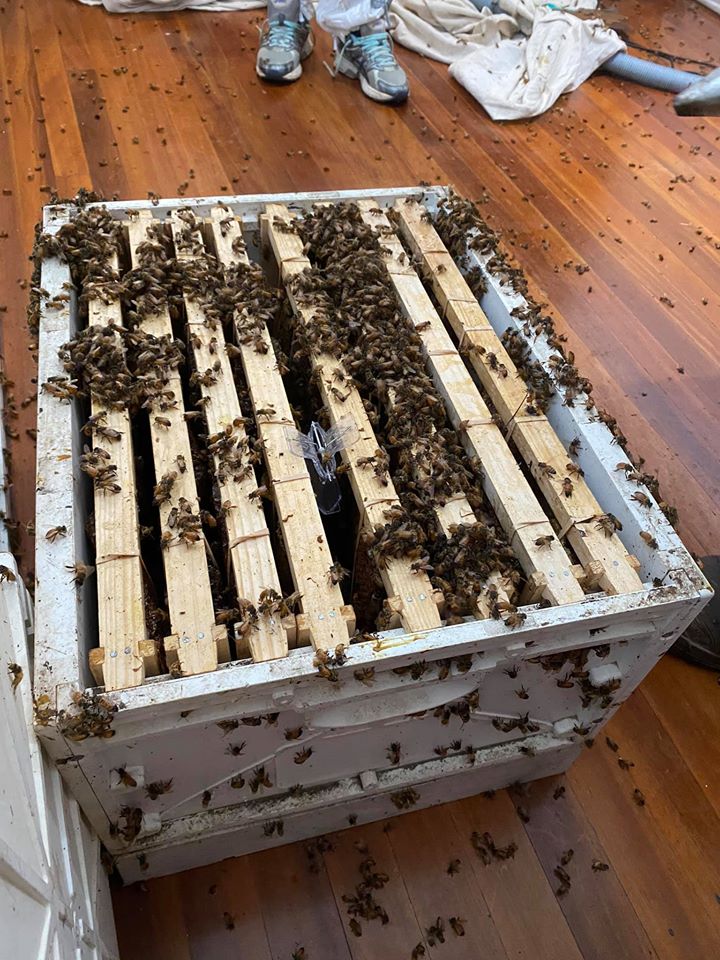
It was a spectacular sight to see as 50,000 bees were removed from the bedroom of local home by Bundaberg Bee Keepers Association.
It definitely wasn’t the Friday afternoon call-out most people would get excited about but for the bee enthusiast group it was music to their ears as they took on the challenge to relocate and save the colony.
Bundaberg Bee Keepers Association president Bec Pohlner said she believed the European bees had formed their colony in the wall cavity of the two-storey brick house about a year ago and the home owners weren’t bothered by it.
“We got the call as the owners were looking to renovate that room and decided they had better move the bees,” Bec said.
“You couldn’t see the bees from inside the home, just hear the buzzing.
“You would see them outside the house, flying around and entering through the weep hole of the bricks.”
Bec said there are typically two ways to remove bees from inside a wall cavity and that was either the cut-out option, where you remove wall panels, or to trap the bees out, which would stop them from returning.
Choosing the cut-out option Bec along with Bundaberg Bee Keepers Association member Stephen took on the challenge to remove the interior wall of the home and gently take out the honeycomb containing the brood that had been built side by side.
Bundaberg Bee Keepers say it's easier to remove bees than kill them

Although for some this type of afternoon call out would make their skin crawl, the bee keepers would happily give their time for free to remove the colony rather than have it killed by a pesticide.
“We formed Bundaberg Bee Keepers Association to help educate people in the general public and school children about bees and how important they are, we need them to pollinate our food source,” Bec said.
“Before we started the group, we found out two colonies had been killed by pest control.
“It’s easy to remove a colony rather than kill them as they can become nasty when provoked and you would have thousands of dead bees to clean up.”
Finding the queen bee is key to removing the hive and the remaining worker bees without too much disruption.
“If you find the queen the rest of the bees will follow her,” Bec said.
“We put her in a box and all the others followed her in.”
Bec said the hive removal was a success with the bees now living at one of the Bundaberg Bee Keepers Association members properties and will be relocated to the club’s apiary in the near future to be used an education hive for the community.
A passion for bees started to grow
It was about four years ago when Bec and her husband Lee realised the importance of bees in the Bundaberg Region, when the citrus trees on their hobby farm gave them fruit for the first time.
“We noticed the macadamias down the road started flowering and there were plenty of bees around,” Bec said.
“Then for the first time we got fruit that year and my husband said we should get some bees permanently and our passion grew and now we have nine hives.”
The passion in Bec’s voice was evident as she explained the workings of bee colonies.
She said worker bees were all female and had an average life span of six weeks in Australia; the males known as drone bees whose main job was to find the queen and mate.
“The drone’s purpose is to spawn genes and only real job is to mate with the queen,” Bec said.

“Five years ago I didn’t think I would be a bee keeper!
“There is so much to know and learn about bees – I still learn every day!”
Bec said owning bees had become more popular in the last few years and it was possible to have a bee hive in a suburban backyard, and people just needed to check with local laws.
“There is a lot of common sense involved when it comes to owning bees,” she said.
“If you respect them and leave them alone it can be very rewarding owning bees and a nice way to also educate your neighbours.”
Bundaberg Bee Keepers welcome new members
Bec said Bundaberg Bee Keepers Association formed in May last year and they were always open for new members and happy to help provide information about bees to the public.
“A lot of bee keepers are at the older end of the scale and we want to encourage more young people to take up the hobby and be informed about bees,” she said.
“Our first meeting for the year will be held in February and we have a lot of plans for the year including an adopt a bee hive program.”
For more information email: bundabergbeekeepers@outlook.com
- Other news: Council, animal rescue groups band together in 2019




